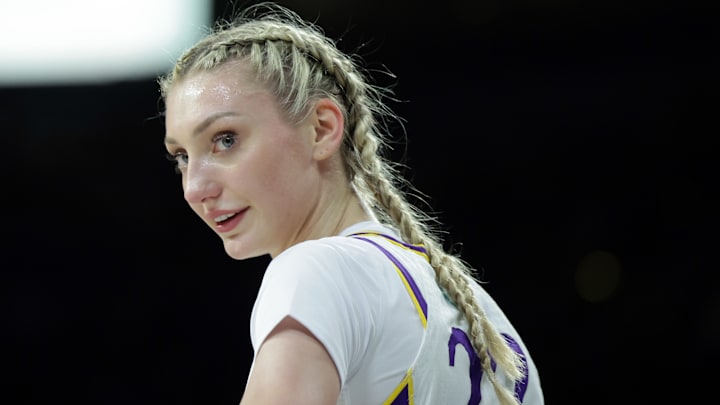The Los Angeles Clippers are setting sail for a new direction. Since Steve Balmer purchased the club in 2014, his mission has been to escape the Lakers' shadow. A fresh logo and a new state-of-the-art arena 13.7 miles away suggest they are aesthetically moving in the right direction. On the floor, they have been dominant against their rivals, amassing a 30-9 record against the purple and gold over the last decade. Neither has been enough to crack their foe's stranglehold on the city.
Is it that the "Lob City" squad never got out of the second round? Perhaps it's the failed superstar tandem of Paul George and Kawhi Leonard, who have yet to make a deep postseason push. The Lakers hoisting their 17th title in 2020 certainly doesn't help. The Clippers might need to draw inspiration from the other LA basketball team to learn how to seize the headlines.
While Caitlin Clark was capturing America's hearts with sensational handles and lethal sharpshooting, Cameron Brink was blazing her path and establishing herself as a pillar of the women's basketball revolution. The second pick in the 2024 WNBA Draft was spectacular during her four seasons at Stanford. The 6'4 center has a laundry list of accolades, including winning a national championship and being a first-team All-American.
In an era of cord-cutting and endless streaming services, Brink's 2021 title victory popped a rating and proved something special was brewing. The Cardinal victory over the Arizona Wildcats was the first women's final to amass over 4 million viewers since 2014. Although her school never reached those same heights in the following three years, Brink's signature double braids, stifling defense, and dominant post-offense made her a fan favorite and a face of the game's renaissance. She recently sat down on Podcast P with Paul George, presented by Wave Sports + Entertainment, to discuss her recent draft class's influence on the sport.
"I'm not going to lie—it's all been confusing," Brink said. "Why is the women's game exploding now? I really think it has to do with the media—where they water the grass, it grows. My mom was the first to attend and graduate college because of Title XI. I was jaywalking the other day, and this car almost hit me and said they knew me. It's better late than never—it's a great shift.
The LA Clippers can learn from this drastic culture shift
Just a few seasons ago, the WNBA appeared on the ropes. The league lost boatloads of cash while failing to market its young talent. Sabrina Ionescu seemed destined to be the catalyst for change. The COVID-19 pandemic canceled March Madness during her senior season at Oregon, which prevented her from showing out on the grandest stage like Brink, Angel Reese, and Clark years later.
If women's basketball can have a transcendent moment, why can't the Clippers? They'll never be LA's favorite hoops franchise, but they don't have to be. For so long, team management has tried to be the alternative. They've been so worried about not being the Lakers that they've failed to solidify their own identity.
Retaining aging veterans to try to fast-track a rebuild is part of the problem. Lost in mediocrity is a sports death sentence. You can't buy a banner, and you must admit when the roster isn't good enough. Enough is enough.
This off-season, the Clips are in the driver's seat. They have a fresh coat of paint and the ability to start over completely. No matter how bleak it's been, there's plenty of time to shift the narrative and elevate the brand.
